Southport Village Voices
An E-Magazine by & for the Residents of Southport
Number 75, May 2016
|
|
|
|
|
|
|
|
Modern Medicine
|
If Big Pharma didn't continue to invent pricey new drugs with unpronounceable names, commercial television would probably cease to exist. But new is not always better.
A friend who's had a long history of difficulty sleeping recently recounted his experience with a variety of chemicals that were intended to help him sleep -- Ambien, Trazedone, Xanax, Klonopin and supplements such as Benedryl -- all to no effect.
He spent a night in a sleep lab to see if he might be suffering from sleep apnea (nope), and shelled out money for special pillows, sleep masks and anti-snore devices. He's practiced good sleep "hygiene" -- going to bed at a regular time, no screen time, no big meals or sugary snacks before bed, etc. All to no avail.
Recently, when he discussed this continuing problem with his doctor, she told him, "Don't tell anyone I said this, but we've had good success with melatonin, especially when taken in combination with milk and a cookie before you go to bed."
He's been trying this and sleeping better.
Sometimes, you just need to listen to your mother.
-------------------------------------------
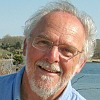
Share a Story About Your Parents
Readers' responses to the "How We Met" stories in the February edition of SVV were enthusiastic. So I'm soliciting short stories about our mothers and fathers, to be published in the June issue of
Southport Village Voices. If you have a special memory about or experience with your Mom or Dad and would like to share it, please send it to me. About 300 words is good. Deadline is May 27. Pictures are very welcome. Thanks.
|
|
 |
|
|
|
SOUTHPORT PROFILE
Jim Sullivan Gets Hall of Fame Call
by Chris McDaniel
|
Jim Sullivan, a resident of Southport since 2013, was for many years the football coach at Norwell High School. On April 24, at a ceremony in Westboro, he was inducted into the Massachusetts High School Football Coaches Association Hall of Fame. The following article is excerpted from an article published in the
Norwell Mariner on April 7.
---------------------------------------------------------------------------
|
|  | |
Jim Sullivan's teams were admired for their winning ways on the field and honored for their sportsmanship.
|  |
When former Norwell High School (NHS) football coach Jim Sullivan received the news that he was going to be inducted into the Massachusetts High School Football Coaches Hall of Fame, his memories from the gridiron came flooding back.
Memories like those in the 90s, when his team would belt out the Righteous Brothers's "You've Lost That Loving Feeling" as the bus pulled into NHS, or when both his sons Dan and Steve were on the sideline with him during an unexpected Super Bowl appearance in 1999.
"One of my first thoughts was about all the kids that have been part of my life, what's now 38 years of coaching," said Sullivan. "It was a quick flashback to all those seasons, all the good times, all the little things we did."
Sullivan built the Clippers's football program up, winning 144 games in 22 years at NHS, but the team was even more respected for their character. During Sullivan's last 12 years at the helm of the Clippers they won the South Shore League Sportsmanship Award 11 times.
 |
|  |
In 2010, at his last game as coach of the Norwell High School football team, Jim was honored for his 30 years of coaching the Clippers.
|
"My philosophy had always been to act with class, be gentlemen, learn the sport, know the sport, but remember that you are part of the Norwell community. I wanted the kids to always act that way, he said. I think that's what I'm most proud of." Sullivan was so respected that Hull, Carver and Cohasset honored him with pre-game ceremonies before home games against Norwell during his final season with the Clippers in 2010.
Despite their gentlemanly way on the field, Norwell had some ferocious runs. From 1997-99 the teams reached three SuperBowls, winning two of them.
In 1997 the Clippers knocked off Rockland and defending champion Hull en route to a 35-0 4B Super Bowl win over Apponequet. Norwell followed it up with an undefeated season that culminated in a 27-12 win over Newburyport in the Division 4B championship. Expectations were low in 1999 after graduating the core of two Super Bowl teams, but that didn't stop the Clippers from reaching the Super Bowl for a third consecutive year before falling to Bishop Fenwick 29-27.
"Something totally, totally unexpected," said Sullivan of his reaction when he found out he was going to be inducted into the MHSSFCA Hall of Fame. "I never really put myself in that category. I was just trying to put together the team for the next year and never really thought about an honor like that."
Sullivan is currently a volunteer assistant coach at Mashpee High School, where he helped the Falcons win the Division 6 state title in 2015. He was the head coach at Newport High in New Hampshire for a year and was also assistant coach in Scituate (six years) and Cohasset (one year).
Sullivan hasn't had a bad run for stepping into a coaching career that he admittedly fell into "accidentally." He was coaching youth football in Scituate when the Scituate High athletic director asked him to coach the Sailors's freshman team. At the time, Sullivan was involved in education as a teacher of English. "I just fell into it," he says. "I look back 38 years and can't believe how lucky I have been to have this in my life."
 |
|  |
Jim and Kathy, the power behind the goal posts, at the Hall of Fame induction ceremony in April.
|
Sullivan credited his assistant coaches for helping him along the way. And his wife Kathy also played a big role in his coaching success. "My wife has been the biggest trooper, he said. "She put on all those Thanksgiving celebrations for all those years and I just kind of showed up at the end of the game and after collecting all the uniforms. I could never have done it without her. I appreciate the daylights out of this award. I appreciate them thinking of me and I appreciate all the guys who did it for me."
|
|
HISTORY
Looking Back At
Contentious Conventions
by Tom Kelleher
|
|
|  | |
Thomas E. Dewey, the Republican nominee for President in 1948
|
|
As the national nominating conventions for President approach, we're hearing a lot about a possible "brokered" or "contested" convention when Republicans convene this summer in Cleveland. I suspect that there are few Southport residents who recall the last official "brokered" convention in American history, viz., the 1948 campaign when Thomas E. Dewey was elected on the third ballot at the Republican National Convention (only to be later defeated by incumbent President Harry S. Truman). So why all the hoopla about a "brokered" convention in Cleveland? Perhaps a few definitions are in order.
A "brokered" convention occurs when no candidate wins a majority of the delegates' votes on the first floor vote at his/her party's convention. Sometimes, the term "contested" is used synonymously with ""brokered" but they are technically different. A "contested" convention occurs when no candidate emerges from the primary season with a majority of the delegates' votes. This happened in 1976 when neither of the major Republican candidates -- Gerry Ford and Ronald Reagan -- received a majority of the delegates' support. Prior to the convention, however; Ford had secured the support of enough delegates to earn the nomination, so technically the convention was not "brokered." Unlike 1976, the possibility of a "brokered" convention in 2016 is very real.
The main purpose of the primary/caucus season is to reduce the number of candidates to one acceptable nominee that party leaders can present at their respective national conventions. The system has worked reasonably well; no national convention has gone beyond the first floor vote since 1952. Delegates are appointed or are chosen at state party conventions or freewheeling caucuses. As candidates work their way through the primary/caucus season, they are not only vying for public support, they are vying for delegate votes.
Some states have a "winner-take-all" system whereby the candidate who wins the majority of votes gets all the delegates; other states award delegate support proportionately, where the candidate with the most votes wins most but not all of the delegate votes in the state. As a general rule, Democrats award delegates using the proportional method, whereas Republicans generally use either a proportional or a "winner-take-all" system. In both cases, party rules govern how delegates are awarded during the primaries, caucuses and even at the convention if no clear winning candidate emerges prior to the convention. Party rules are not etched in stone and can change from election to election.
To complicate matters, "super delegates" have been a part of the nominating system for both parties since the 1980s. These folks, at least for the Democrats, are usually state party officials, governors, and high ranking politicians such as former Presidents (e.g., Bill Clinton is a super delegate for 2016). Republican super delegates are fewer in number and do not conclude as many party elites. The rules regarding the use of super delegates also differ for the two parties. Democrat super delegates need not follow the popular vote and can support whomever they please at the convention. (Sound a little undemocratic?) By contrast, Republican super delegates are pledged to vote for their party's nominee.
Super delegates became part of the electoral process at conventions so that renegade candidates, who may enjoy a brief popular windstorm of support but who have little chance of being elected, can be stopped in their tracks to make way for a more "electable" candidate. Remember Barry Goldwater, the Republican nominee in 1964? He lost 44 of the 50 states. Or George McGovern, the Democrat nominee in 1972? He lost 49 of the 50 states.
Democrat super delegates make up about 15% of the delegate vote and could play a major role in thwarting the nomination of a popular but unelectable candidate. On the other hand, Republican super delegates comprise only about 7% of the delegate vote and would probably be ineffective in barring the nomination of an unelectable candidate.
Ironically, Democrat party leaders may be wishing that their super delegate system were more like the Republicans' system because there is a slim chance that Bernie Sanders's recent successes could peel away critical delegate votes from Hillary Clinton. And Republican party leaders probably wish their system was more like the Democrat's so that party elites among the super delegates could more effectively stop the smooth path to the nomination that Donald Trump seems to be following.
Republican and Democrat party leaders worry that, if nominated,
recently popular presidential candidates like Donald Trump and Bernie Sanders
would be "unelectable."
The 2016 presidential election is indeed a unique time in American history. Neither party wants to deal with a "brokered" convention. This leads to nothing but negative publicity, portrays weakness within party ranks and promotes internal strife among the leaders. Party officials would like to see any "brokering" done prior to their national conventions so as to present a united front going into the November election. Such was the case in 1980 when frontrunner Ronald Reagan, in order to avoid a fight at the convention, agreed to choose George H. W. Bush over the more popular Gerry Ford for Vice-President. In contrast, during the election of 1924, the Democrats preferred floor fights, and it took 103 ballots to choose John W. Davis as their nominee (who went on to lose to Calvin Coolidge).
As Republican primaries and caucuses continue with three candidates still battling for the nomination, it is possible, that neither Mr. Trump nor Mr. Cruz will get to the convention with a majority of the delegate vote, thus leading to a "contested" convention -- or worse, if no deals are made between the two candidates, a "brokered" convention. Each state has and/or will have a number of "unpledged" delegates at the convention. This is where candidates and their organizations have the leeway to woo those delegates using whatever legal (or illegal?) means necessary to win them over. The Federal Election Commission will probably have its agents on high alert over the next couple of months to make sure that party rules, convention rules and the letter of the law are followed.
You've already heard Donald Trump complaining about the "corrupt" undertakings of the Cruz campaign to attract wavering unpledged delegates. During the 1976 presidential campaign, both Gerry Ford and Ronald Reagan went to unprecedented lengths to win over unpledged delegates. As the incumbent President, Ford invited entire state delegations to White House lunches and dinners. Reagan used his influence in Hollywood to get John Wayne, Jimmy Stewart and Pat Boone to make personal calls to uncommitted delegates. All that was perfectly legal, of course, but as recent history shows, national political maneuvering has "evolved" to such a level of impropriety that civic minded citizens and various watchdog agencies will not be looking the other way. I can't wait to see what happens at the national nominating conventions!
SOURCES
|
New in the Neighborhood
Spotlight Interviews & Pictures by Andy Jablon
|
Judy Phillips 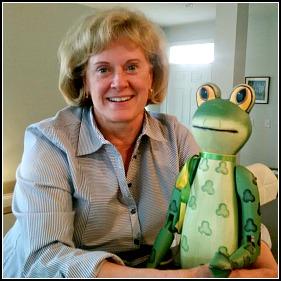
27 Grey Hawk
Moved in September 2015
Originally From: Wolfeboro, NH
Previous Residences: Bedford, NH
What Kind of Work Did You Do:
I have my own travel consulting business "Getaway Dreams." My motto is "Travel is the only thing you buy that makes you richer."
Why Southport:
Time to downsize. Wanted brand new start and a brand new life. When I came here to visit, walking around I had a good feeling.
Like Best about Southport: The people. Everyone here is so friendly.
Like Least: Wish garage door was wider.
Want to Get Involved with: Travel Committee and exercise classes.
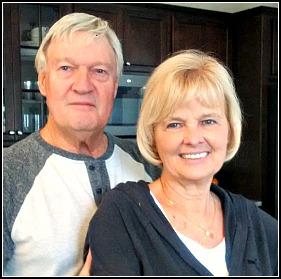
Warren & Elaine Anderson
33 Grey Hawk Drive
Moved in September 2015
Originally From:
Elaine -- Brockton; Ed -- Chicago
Previous residence: Easton
How They Met: Met at a dance in Randolph in 1989
What Kind of Work Did You Do:
Elaine -- elementary school teacher in Brockton (grades 1-3);
Warren -- research for pharmaceutical company in Milford
Why Southport:
Had the most activities of all the retirement communities we looked at. Also, Elaine spent a lot of her youth on the Cape.
Like Best about Southport:
Our neighbors, being on the Cape. You can't get lonely here, there's always something to do.
Like Least: More landscaping and trees.
Want to Get Involved with:
Elaine -- book Club, exercise classes, yoga, swimming
Warren -- golf, tennis and fishing
________________________
NOTE: If you are a newcomer to Southport within the last year
and would enjoy meeting Andy for a Spotlight interview,
please contact him at andy@wvpboston.com.
|
|
Whales In Our Neighborhood
by Evelyn Ganson
|
|
|  | |
Map: Courtesy of Stellwagen Bank National Marine Sanctuary
|  |
Some of the best things about living on Cape Cod are the beautiful parks, trails and beaches. We also have a wonderful ocean sanctuary just off our coast. Stellwagen Bank National Marine Sanctuary encompasses 842 square miles of open ocean across the mouth of the Gulf of Maine, stretching from Provincetown to Cape Ann, with a mission to protect the natural environment while maintaining a balance with the commercial and recreational uses of the area.
Stellwagen Bank itself was formed when retreating ice age glaciers left an underwater plateau that is shallower than the surrounding deep seas. As a result deep, cold water "bumps up" against the bank and rises toward the surface, initiating a process called upwelling, which starts a rich food chain that supports large numbers of fish, seabirds, and huge whales.
Several kinds of large whales can be found in the sanctuary, including humpback, right, fin, sei, and minke. My favorites are the humpback whales. At up to 40 feet long and weighing 45 tons (about the size of a city bus), they are the most acrobatic whales and therefore the most fun to watch. From spring to fall you can see them at the surface gulping huge mouthfuls of small fish, or creating underwater bubble nets -- curtain-like rings of air bubbles that surround and concentrate fish into a tight ball,
|
|  | |
Humpbacks breach for unknown reasons. Maybe just because it's fun. Photo: WDC (whales.org)
|  |
or slapping the surface with their flippers or tails, possibly to stun the fish.
Best of all, you may see them breach as they propel themselves completely out of the water and land with a gigantic splash. Scientists still do not know exactly why a 45-ton animal expends so much energy. Guidelines are in place that prohibit close approach to whales, but if you are really lucky a curious humpback may deliberately approach your stopped boat.
Humpbacks are baleen whales, which means instead of teeth they have a series of long thin plates embedded in their upper jaw (used in whaling days as "stays" in ladies' corsets). The baleen acts like a giant strainer. To feed, the whale opens its mouth wide, taking in large volumes of water and prey. As it closes its mouth, it contracts its throat muscles to squeeze the water out through the baleen plates, leaving the fish behind.
Adult humpbacks eat up to a ton of food per day, an intake of a million calories or more. They are faithful to their northern feeding grounds, and each spring about 1000 of them return to the cool nutrient-rich waters off our coast to feed and nurse their young. They arrive hungry, and will feed throughout the summer to store up much-needed fuel. Then in late autumn they travel 1500 miles south to mix with other feeding groups from different parts of the North Atlantic to breed and give birth in the warm waters of the Caribbean. Once there, they do not eat for months, living off thick fat reserves built up during their long summer feeding season.
|
|  | |
A humpback is identified by the unique markings on its tail.
Photo: Center for Coastal Studies
|  |
With a thriving whale watching industry that includes naturalists on board, and many research organizations in the area, the Gulf of Maine humpbacks are the most studied population of baleen whales in the world. Scientists can identify and track individual whales because the natural markings and scars on the underside of their flukes (tails) are as unique to each whale as fingerprints are to humans. A catalog of more than 8000 fluke photographs is maintained by Allied Whale at the College of the Atlantic in Bar Harbor, Maine, and new photos are matched and added along with dates and locations. Studying this information helps scientists understand the structure of families and other social groupings and provides clues to population numbers. The study of a female whale over many years can reveal the important milestones of her life.
For example, a whale named SALT, who has been seen in the sanctuary every year but one since 1976, and also photographed off the coast of the Dominican Republic, confirmed the north-south migration pattern of humpbacks. Years of data collected about SALT and her offspring show she is more than 40 years old, gives birth at 2 to 3 year intervals, and is a great-grandmother. She has escorted 13 of her calves from the Caribbean back to Gulf of Maine feeding grounds, the most recent in 2014, and currently has 11 grandchildren, and one great-grandchild. The closest relationship for humpbacks is between mother and calf. Females reach sexual maturity at six to ten years, and the gestation period is 11 or 12 months. The mother's rich milk has a very high fat content, and during the first six months a calf may grow as much as an inch and gain almost 100 pounds each day. A calf will travel with its mother for nine months to a year, learning everything it needs to know to survive on its own.
 |
|  |
A humpback checking out its surroundings.
Photo: WDC (whales.org)
|
Humpbacks are an endangered species and face many challenges, including ship collisions, noise from human activity, polluted water, climate change, entanglements in fishing gear and other problems. Along their migration route there is a natural hazard of orca attacks, primarily on humpback calves.
Stellwagen Bank National Marine Sanctuary protects them while they are in the sanctuary, and in addition has initiated a Sister Sanctuary program to help protect them when they leave the sanctuary. Currently collaborating with marine mammal sanctuaries in the Dominican Republic, Bermuda, the French Antilles and the Caribbean Netherlands, this pioneering program of the United Nations Environment Program is the first international partnership in the world protecting North Atlantic humpback whales throughout their migratory range. Within eight years, sister sanctuary nations have expanded protection for humpbacks from 842 square miles to more than 250,000 square miles, one of the largest coordinated marine conservation areas in the world.
Stellwagen Bank National Marine Sanctuary has recently been voted the #1 Best Place to See Aquatic Life in USA Today's latest 10-best reader's choice travel awards contest. Living in Southport, we have a great opportunity to observe some of the largest animals on the planet by visiting the sanctuary with whale watching companies operating from a number of south shore and Cape Cod harbors.
|
|
|
It's the season of
the umber plumes,
the noxious yellow
napalm that infiltrates
through concrete
and wood in search
of my eyes and
nose and ears to
snuff the sunshine
from my lungs.
Weary from winter,
hungry for summer,
there's no relief.
Mother Nature is a
terrorist. I can not
hide from her
ocherous haze.
Already beaten down
from the sideways
rain that pierced
my resilience like
a billion needles,
I am weak.
I dust, I vacuum,
I eat Claritin for
breakfast but in
the end she
conquers me.
|
|
NON COMPOS MENDES
Bob Mendes
|
I've been reading the advice columns in a couple of different newspapers and have come to the conclusion that the people who write in for advice don't really need advice. All they need is a course in common sense.
Katrina vanden Heuvel, editor and publisher of The Nation, describes this year's presidential campaign as the "Politics of Spectacle." You can't improve on that.
Some things that I wonder about:
- Why don't dogs ever get insomnia?
- What do professional golfers do when they're on vacation?
- Why can't you make a silk purse out of a sow's ear?
- If a joke is funny the first time you hear it, why isn't it funny the second time?
- Sitting around with a bunch of friends, just talking, is very pleasant. Why is it given such an unattractive label by being referred to as "Chewing the fat?"
The State of North Carolina seems to be on to something. They passed a law forcing transgendered persons to use public restrooms that coincide with the gender stated on their birth certificates. I think all states should adopt the same law. This would solve the country's unemployment problem by creating the need to hire hundreds of thousands of Restroom Gender Enforcement Officers. Way to go North Carolina!
One of my favorite Mark Twain quotes: "It used to be a good hotel, but that proves nothing. I used to be a good boy."
Many of you who have lived in the Boston area remember Tip O'Neill
as your congressman. I know of him only as the Speaker of the House, a master politician, who did battle with Ronald Reagan on a regular basis. Recently I read some of his thoughts, specifically:
- It's a round world. What goes around, comes around.
- You can accomplish anything if you're willing to let someone else take the credit.
- Lead by consent, not by demand.
- You can switch your position, but do it quickly and openly. Learn to say,
"I don't know, but I'll find out." - Never speak of yourself in the third person.
- Tell the truth the first time and you won't have to remember what you said.
- No chore is too small.
- Never lose your idealism.
From the archives of Anything for a Vote, Warren Harding vs. James Cox, 1920:
With a candidate as libidinous as Harding, the Republicans knew they had to act quickly. The first thing they did was get rid of the evidence. They sent his married lover Carrie Fulton Phillips and her entire family on an extended tour of Asia, all expenses paid. And just to play it safe, they also sent Harding's brother-in-law to Europe because the guy had just married a Catholic and Catholics didn't play well in the conservative mid-west. Harding was also a boozer, although he espoused support for Prohibition (a popular sentiment throughout the country). As energetically as the Democrats attacked him, Harding was an accomplished politician and won the election handily.
An 'admiring' biographer stated that Harding gave the people a
"satisfying emptiness."
FINAL THOUGHT This really shouldn't come from me, but wouldn't it be nice to have a tasteful plaque in the Village Center with the names of retired Board of Governor members? In the few short years we've been self-governed, there are already four. These people have put in long hours in a thankless job and deserve to have some lasting recognition.
|
|
Contributors to the
May 2016 Edition of
Southport Village Voices
|

Lydia Biersteker
grew up in Somerville, MA. She met her husband Dale on the beach at Falmouth Heights in 1969, while he was stationed at Fort Devens. After Dale retired in 2005 from his executive position with the USPS, they moved to Vero Beach, FL but decided that they preferred New England. They moved to Southport in 2011. Dale plays golf, and Lydia likes gardening, walking, writing poetry and short prose, exploring genealogy, and lunching with friends. Together, they enjoy dining, exploring wineries and brew pubs, walking the trails of Cape Cod, traveling and playing with their grandkids, who live on the North Shore.
Andy Jablon 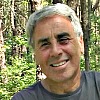
owns a television production company in Watertown that provides crews to shoot stories in New England for the major TV networks. As producer, he interviews all sorts of interesting people on a regular basis. His wife Tracy Tebbutt works at a cancer pharmaceutical company in Cambridge. Since July 2014, they split their time between Southport and Boston, depending on work schedules. Both are enthusiastic cyclists, riding along the Charles River to work in almost all kinds of weather. At Southport, they relax by walking, biking, playing tennis and soaking in the hot tub.
 Evelyn Ganson Evelyn Ganson
grew up in a rural area of New Jersey, spent 30 years on the west coast of Michigan, and moved to Southport last December after living for eight years in Scituate, MA. Starting her career as one of the early computer programmers for AT&T, she eventually founded a computer related corporation, retired early, and set out to see the world, including an amazing journey across Siberia. She is currently a volunteer writer and sometime whale observer with the scientists of Stellwagen Bank National Marine Sanctuary.
 David Kapp David Kappwith his wife Billie, moved from Connecticut to Southport in 2009. David retired from a career as a university library administrator, after working in the libraries at Brandeis, Harvard and the University of Connecticut. He was a building consultant for the planning of a number of major university libraries and was, for many years, the editor of Connecticut Libraries. Billie enjoyed a career as an educator and social sciences consultant. The Kapps are frequent visitors to Hawaii where their son and other family members live. Their daughter and grandson recently moved to Mashpee from the Big Island of Hawaii.
Tom Kelleher 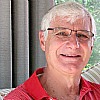
grew up in Lowell, MA and stayed in that area after marrying Kathryn, his "college sweetheart" and wife of 43 years. After raising a family of five children and somehow paying for five private college educations, Tom and Kathryn retired to Southport in August 2014. Tom pursued a career in public and private education that spanned 42 years. He was a teacher and administrator at Dracut High School and later principal at Nashua Catholic Regional Junior High in Nashua, NH. Upon retirement and prior to moving to Southport, Tom took on a "fun" job as a part-time museum teacher and history tour guide at Lowell National Historical Park. In addition to history, Tom's other passion is singing and playing guitar in various "open mic" and song circle venues in the Falmouth/Sandwich area. Tom also performs for patients at the Tradewinds Adult Day Care Center in Sandwich.
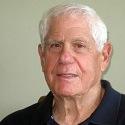 Bob Mendes Bob Mendesbegan his career as an advertising copywriter at Doyle Dane Bernbach in NYC before becoming senior vice president of marketing for a west coast department store chain. He left that position to start Pacific Sports, a sports and general marketing agency. There he developed "The Reading Team," a children's literacy program sponsored by the NFL and the American Library Association, using NFL players as literacy role models. Bob is the author of "A Twentieth Century Odyssey, the Bob Mathias Story." After retiring, he served as executive director of the Glendora, CA Chamber of Commerce. When grandson Adam was born, Bob and Bette moved to Cape Cod. He's had a number of part-time jobs, has written two more books, and volunteers. Bette serves on the Board of Governors and volunteers at the Falmouth Jewish Congregation. Their son Steve, a pediatrician, lives in Marion with his wife Sarah and their children; a second son, Jeff, practices law in Indianapolis.
Special Thanks To
my proofreader Billie Kapp
|
|
|
|
|
|
|
|